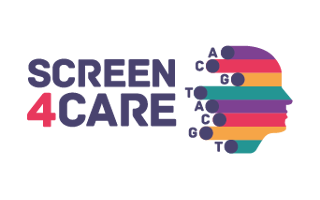New EU Research Project “Screen4Care”: Accelerating Diagnosis for Rare Disease Patients Through Genetic Newborn Screening and Artificial Intelligence
There are more than 7,000 known rare diseases – conditions that affect one, or less than one, person in 2,000. Rare diseases collectively impact an estimated 27-36 million people across the EU and will affect one in 17 people during their lifetime. They are often severe, multisystemic chronic diseases that put patients at risk of permanent organ damage and degeneration. Patients typically face an arduous journey to proper diagnosis, enduring on average eight years of countless doctor’s consultations, misdiagnoses and ineffective treatments. Lengthy diagnosis journeys place a heavy burden on patients, their families and society. They also hinder swift intervention – such as appropriate treatments or enrolment in clinical trials – and patient empowerment, realised through strategies such as lifestyle adjustments, family planning, genetic counselling and coping with the psychosocial and financial consequences of the condition.
This month, Eurice joins 34 consortium partners in the launch of Screen4Care which aims to tackle the major hurdle for rare disease patients – the lengthy and convoluted diagnosis journey – via an innovative research approach based on two central pillars: genetic newborn screening and artificial intelligence (AI)-based tools. The EU research project will run for a period of five years with a total budget of EUR 25 million provided by the Innovative Medicines Initiative (IMI 2 JU), a joint undertaking of the European Union and the European Federation of Pharmaceutical Industries and Associations (EFPIA).
Screen4Care will use a multi-pronged strategy to shorten the time to diagnosis and treatment for patients with rare diseases through genetic newborn screening which is anticipated to be an effective tool for early diagnosis given that approximately 72% of rare diseases have a genetic cause and 70% of rare disease patients are children. Additionally, the project will design and develop new AI algorithms to identify patients at early disease onset via electronic health records and develop a repository of AI ‘symptom checkers’ to help patients who are in the midst of their diagnosis journeys – both supporting symptom-based diagnosis later in life.
“Screen4Care has the potential to help patients benefit from precision diagnostics that lead to better care, meaningful hospital visits and a better overall quality of life – and to help strengthen healthcare systems through novel diagnostic tools and a resource-efficient technological infrastructure”, said Alessandra Ferlini, Associate Professor of the Department of Medical Sciences, and Head of the Medical Genetics Unit at the University of Ferrara, Italy, and Scientific Coordinator of the project. “Of particular importance to the project is the active involvement of stakeholders to help shape the design and decisions for value-based healthcare.”
In particular the participation of rare disease patients in Europe will promote the robust dialogue and ensures the needs and preferences of the rare disease community guide progression of the project. “Screen4Care is dedicated to giving everybody representation at the table”, explained Dr Garnier. “The project’s focus on equity sets it apart, and it is a unique opportunity to effect meaningful, longstanding change for the diverse rare disease community.”
Building a digital infrastructure to foster exchange among physicians, patients, relatives and caretakers In addition to its goal of developing an early-diagnosis system, Screen4Care aims to establish a digital infrastructure and ecosystem to engage patients, parents and caregivers as equal decision-makers in the diagnosis process. An open innovation platform will be provided, which allows for continuous data collection and information exchange, aiding the development of next-generation diagnostics and enabling more informed decisions at an earlier stage. Screen4Care proposes that this will contribute to minimised disease progression, improved patient health and quality of life and an optimised use of healthcare resources.
The Eurice team ensures the successful implementation of Screen4Care though its long-standing expertise in project and innovation management, strategic dissemination and communication. Screen4Care is the seventh IMI project Eurice is managing.
Visit us also on Twitter: @Screen4Care

